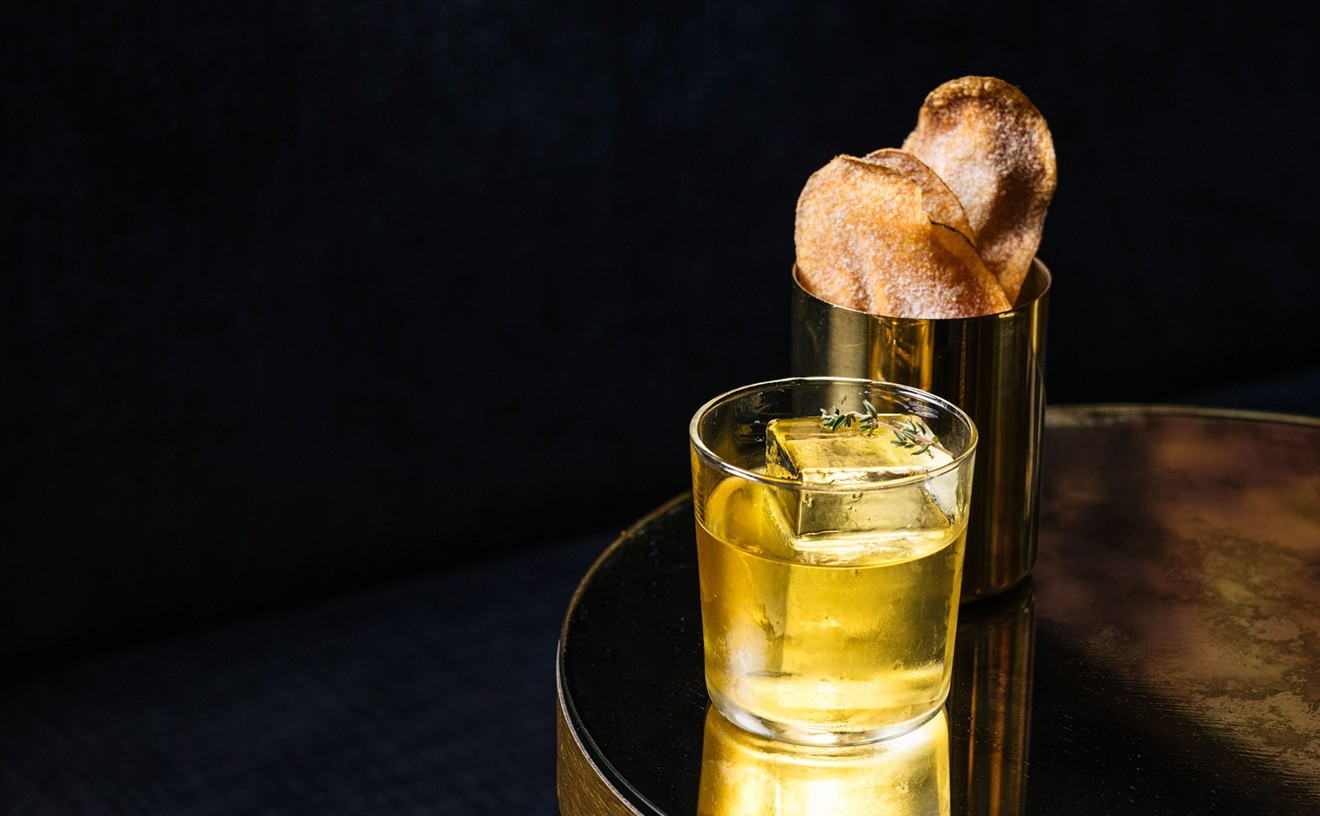Don't be so quick to ditch hot brewed coffee for cold this summer. While there are pros and cons to both brewing methods, Daniel Suh says it all boils down to a matter of taste and what flavor experience you're looking to get out of you're coffee. While the grind of your coffee and even the water you use to brew it are perhaps more important, the temperature you brew at will pull out different flavors and even change the way you taste it.
Hold onto your hats--it's about to get a little technical in here.
See Also: How To Make Cold Brew Coffee
Daniel Suh of Provision Coffee wasn't always a coffee guy. The Phoenix-native studied at the University of Arizona with a double major in finance and entrepreneurship and a minor in biochemistry. While discussing coffee, he's liable to warn you, and even apologize, several times for his coffee geek-outs. He's worked as a barista in coffee bars across the country and teaches classes and workshops in conjunction with the SCAA, approaching coffee from a scientific background to help lend some credibility and facts to the industry.
Let me just start by saying, if you're looking to find out whether cold brewed or hot brewed coffee is better, Suh isn't the guy to ask. He sums that sentiment up in saying, "To drink coffee in just one way, to me, you're just limiting your own experience."
Where cold and hot brewed coffees differ most is the flavors they extract, which largely does have to do with chemical reactions due to water temperature. In other words, cold brewed coffees tend to be smoother in quality, pulling out richer, chocolate and caramel notes. Hot brewed coffees tend to be fuller bodied and more acidic in taste because hot water is a more effective catalyst for pulling out those acids.
Suh explains that traditionally hot brewed coffees only have about 1.15% coffee material after brewing, with the other nearly 99% just being water. Espresso shots, on the other hand, are closer to 10% coffee material. This has nothing to do with the caffeine level in either, though, but the intensity of flavor.
While bright, acidic flavors (or as Suh calls them, "sparkly and lively") come easy the cappuccinos, the addition of milk can sometimes result in a "sour milk" flavor in certain instances. For more bitter espresso shots, Suh recommends treating the shot like a shot of whiskey, which is more commonly put on ice or mixed with water or sugar to make it more palatable.
While those intense flavor issues can arise with hot brewed coffees, especially espresso, cold brew can suffer from a consistency issue. Suh says it's nearly impossible to ensure consistent flavor extraction and intensity with cold brewed coffee. So when I was excited because my cold brew had different flavors every time I tried it, I was really just tasting inconsistency. Whether that's a bad thing, you can decide for yourself.
However, another issue many people see with cold brew is that the beans have the ability to get stale, which means you won't be able to get as much flavor out of it. As with any food, exposure to air causes it to oxidize and stale or rot. When you grind coffee beans, you increase the surface area that is exposed to air, therefore speeding up oxidization.
The issue some hot brew purists see here is that the coffee, when cold brewed, is essentially getting stale before it has time to brew fully, since most cold brew times are pinned at 24 hours. However, Suh says 24 hours after grinding is typically about the time when you begin to lose flavor.
However, if you've ever sniffed a cup of cold brew (don't act like you haven't), you've probably noticed that you don't get that intense coffee aroma that you would with a hot cup of joe. Suh says this is because those "volatile aromatics" are brewed better in hot temperatures, and, since they are volatile, they go away quickly.
But, again, if you prefer richer, smoother coffee, cold brew is the way to go. Plus, cold brew is 15% less acidic than hot brewed coffees typically, which is better for people prone to heartburn.
"Have I had really great cold brews? Yes. Have I had really bad cold brews? Yes," Suh says.
In order to capture both the brightness of hot brews and the smoothness of cold brews, hybrid brewing methods are becoming more popular. Typically, that means blooming coffee in hot water and then quenching it to stop the reactions with cooler water, then refrigerating. However, the Japanese style of hot brewing in a Chemex that brews directly onto ice, could also be considered hybrid.
Pulling the many acids, sugars, and other flavor components out of coffee is as much of an art in the craft of a well-trained barista as it is a science to be studied for Suh. Even the way that we taste hotter and colder temperatures of food and beverages in general plays a role in how you'll taste coffee, with hotter being perceived as more acidic and colder being perceived as more bitter.
"Our most valuable sensory tools is our palate," Suh says. "Its really what separates an okay barista from a great barista."
Suh says, in reality, the closer coffee gets to body temperature, the more flavor elements you'll be able to taste. Not that you should rush out to get lukewarm coffee or anything, but that's just how your tastebuds work. So whether you drink hot or cold coffee really just depends on what flavor experience you're looking to get from coffee.
"At the bottom line, if it tastes good, you just kind of know."











